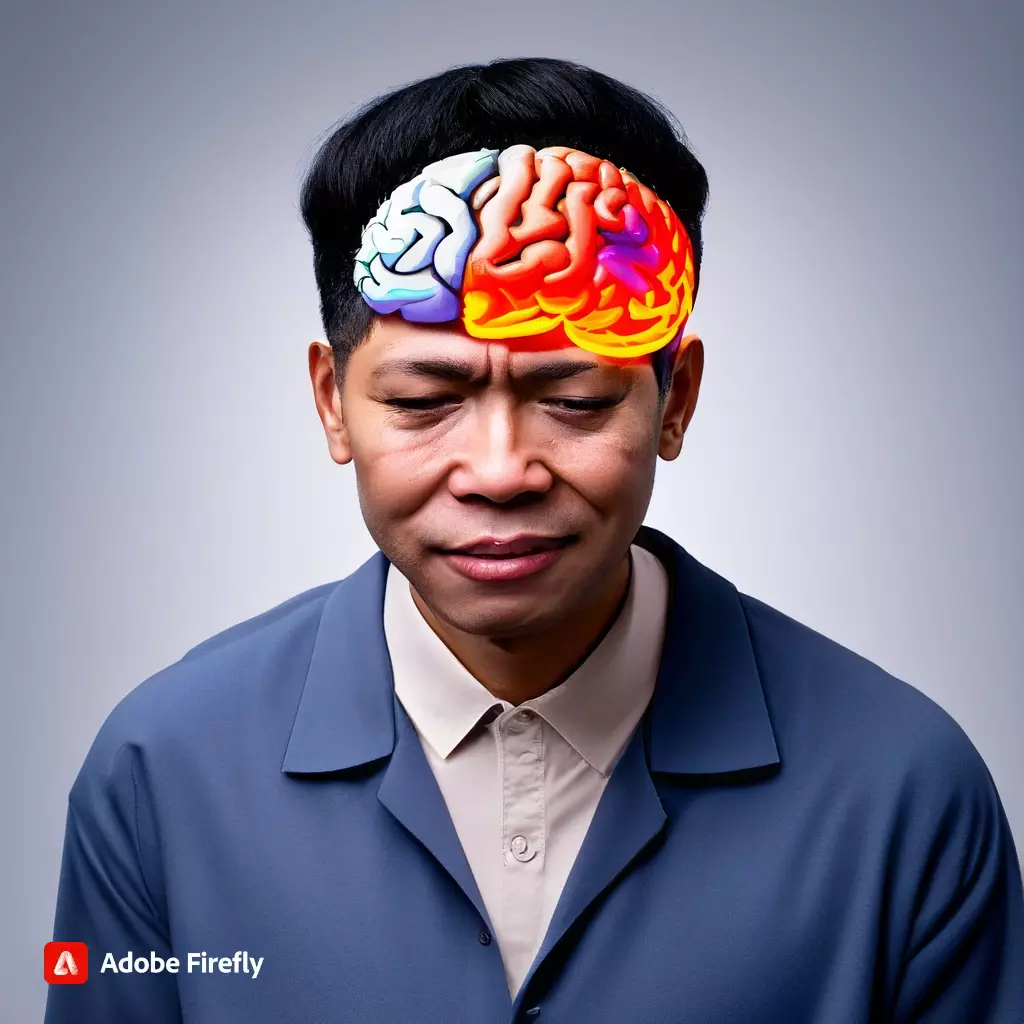
Image Credits: Adobe Firefly
Unveiling Novel Mechanism: Empowering Brain's Self-Repair Following Ischemic Stroke
Writer: Richa Yadav
She is a student of Sister Nivedita University, Kolkata. She is currently in UG5 pursuing Journalism and Mass Communication.
India, 21 Sep 2023 11:28 AM GMT
Editor : Ankita Singh |
A literature lover who likes delving deeper into a wide range of societal issues and expresses her opinions about the same. Keeps looking for best-read recommendations while enjoying her coffee and tea.
Creatives : Richa Yadav
She is a student of Sister Nivedita University, Kolkata. She is currently in UG5 pursuing Journalism and Mass Communication.
Ischemic stroke, a devastating condition characterized by a disruption of blood flow to the brain, remains a leading cause of long-term disability and death worldwide.
Ischemic stroke, a devastating condition characterized by a disruption of blood flow to the brain, remains a leading cause of long-term disability and death worldwide. In recent years, researchers have been tirelessly exploring new avenues to promote recovery and improve the quality of life for stroke survivors. A breakthrough discovery in the realm of neuroscience is shedding light on a previously unknown mechanism that encourages the brain to initiate its own healing process after an ischemic stroke. In this article, we delve into this remarkable finding and its potential implications for stroke treatment and rehabilitation.
The Challenge of Ischemic Stroke
Ischemic stroke occurs when a blood clot or plaque buildup obstructs a blood vessel supplying the brain. This interruption in blood flow starves brain cells of oxygen and essential nutrients, leading to rapid damage and cell death. Until now, recovery from such damage has been considered limited, with most stroke survivors facing long-lasting impairments in motor skills, cognition, and quality of life. However, recent research has provided a glimmer of hope by uncovering a previously unknown mechanism that triggers the brain's self-repair processes post-stroke.
The Brain's Remarkable Plasticity
The brain is an incredibly adaptive and plastic organ, capable of reorganizing itself in response to injury or changes in function. This phenomenon, known as neuroplasticity, allows the brain to rewire neural pathways, form new connections, and recover lost functions over time. Neuroplasticity is particularly crucial in stroke recovery, as it can influence the extent and speed of rehabilitation.
The Discovery: Neurogenesis in the Adult Brain
One of the most exciting developments in stroke research revolves around the discovery of neurogenesis in the adult brain. Previously, it was widely believed that neurogenesis, the generation of new neurons, primarily occurred during development and ceased in adulthood. However, recent studies have challenged this long-held belief.
Research has shown that certain regions of the adult brain, particularly the hippocampus, retain the ability to generate new neurons in response to specific stimuli and injuries, including ischemic strokes. This process, known as adult neurogenesis, is now being explored for its potential to promote recovery after brain injuries.
Stimulating Adult Neurogenesis
Understanding how to stimulate adult neurogenesis after an ischemic stroke is a promising avenue of research. Researchers are exploring various approaches to activate this process and enhance the brain's capacity to repair itself. Some of these methods include:
1. Physical Activity: Regular exercise has been linked to increased neurogenesis. Exercise promotes the release of growth factors and other molecules that support the survival and integration of newly formed neurons.
2. Environmental Enrichment: An enriched environment, with cognitive challenges and social interaction, has been shown to stimulate adult neurogenesis. It creates a conducive milieu for brain repair.
3. Pharmacological Interventions: Some drugs are being investigated for their potential to enhance neurogenesis. These substances may provide a pharmacological boost to the brain's self-repair mechanisms.
Implications for Stroke Treatment
The discovery of adult neurogenesis in the wake of ischemic strokes offers new hope for stroke survivors. It suggests that the brain has innate mechanisms for self-repair, and researchers are working diligently to harness this potential for therapeutic purposes.
While there is still much to learn about how to stimulate and harness adult neurogenesis effectively, this finding represents a significant step forward in stroke research. It offers the possibility of more effective treatments and rehabilitation strategies that can lead to improved outcomes and quality of life for individuals affected by ischemic stroke.
The journey to recovery after an ischemic stroke is challenging, but recent scientific breakthroughs are illuminating a path towards improved outcomes. The revelation of adult neurogenesis in the brain following stroke has opened up exciting new possibilities for stroke treatment and rehabilitation. As researchers continue to explore ways to stimulate and enhance this natural healing mechanism, the future holds promise for more effective strategies to empower the brain's self-repair processes and enhance the lives of stroke survivors.
Also Read: The Brain's Maestro: How Dopamine Orchestrates Decision-Making Speed & Precision?
 All section
All section














